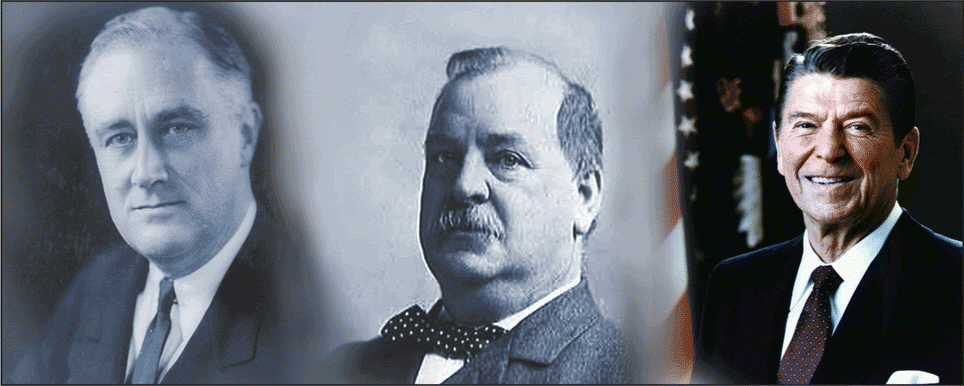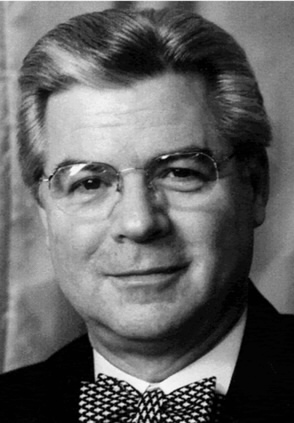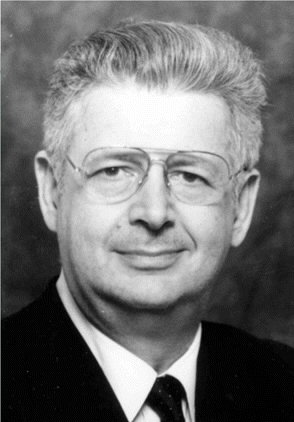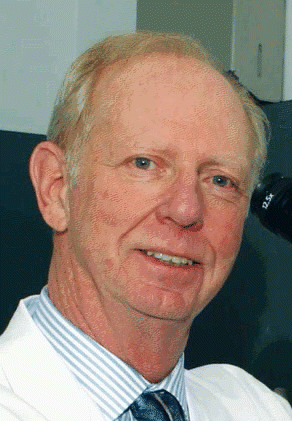CHICAGO-As this article is being written, the presidential campaign is in the final heat, and all eyes are turning toward the finish line. Although speculation runs high on who will win-and, by the time this article is published, the race will have been won-there is one certainty that is indisputable. Whoever becomes the next President of the United States will inherit a nation facing many critical issues.
Explore This Issue
December 2008Given the high stakes of this presidential race, does the electorate have a right to full disclosure of the medical records of the candidates? Do these rights apply to a sitting president during a time of crisis? What are the obligations of a candidate or sitting president to inform the public of a medical condition that may affect his or her performance in office?
These are some of the questions that naturally came to mind when listening to presentations given recently at a miniseminar on presidential health problems at the American Academy of Otolaryngology-Head and Neck Surgery (AAO-HNS) 2008 annual meeting. Several otolaryngologists-cum-history buffs described otolaryngologic disorders of several past presidents of the United States. If history can inform, then a look at a few of these past ailing presidents and how they were treated can perhaps give us moderns a glimpse into our own times and needs.

Franklin Delano Roosevelt
With the financial markets bobbling high and low and as pundits brace the populace for difficult economic times, perhaps no other modern day president than FDR represents what the next US president will face when he steps into the Oval Office in January 2009.
Although it is well known that FDR suffered from polio, less known is that he was a life-long sufferer of otolaryngological problems as well, which, according to Robert J. Ruben, MD, were far more bothersome to FDR than his polio.
He [FDR] soldiered through the polio, but the respiratory problems that kept him in bed for days at a time bothered him the most, said Dr. Ruben, Distinguished University Professor of Otorhinolaryngology-Head and Neck Surgery and Professor of Pediatrics at Albert Einstein College of Medicine and Montefiore Medical Center in New York.
 My personal opinion is that the leader of the US, just as you and I, should be able to keep certain things private if we are absolutely positive that they don’t influence our performance daily or ability to produce whatever we do.
My personal opinion is that the leader of the US, just as you and I, should be able to keep certain things private if we are absolutely positive that they don’t influence our performance daily or ability to produce whatever we do.-Lanny G. Close, MD
According to Dr. Ruben, the sinusitis, laryngitis, and bronchitis that plagued FDR were his foremost concern at the onset of his presidency in 1933 and persisted throughout his three terms as president until his death in 1945.
As the personal physician to FDR, Ross T. McIntire, MD, an otolaryngologist, treated FDR’s upper respiratory problems with nasal and laryngeal sprays. However, the exact nature of the treatments Dr. McIntire used to treat FDR were not known and raised some concern.
Further concern over the manner in which Dr. McIntire treated FDR came toward the end of FDR’s presidency-and life-when FDR was admitted to Bethesda Naval Hospital in March 1944 and diagnosed with hypertensive heart disease. Although Dr. McIntire convened a panel of military and civilian experts to weigh in on the best care for FDR, his decision not to share FDR’s cardiac problems with FDR’s family or with the media was highly criticized after Roosevelt’s death.
 With a candidate, the public has a right to be informed about whether the person has a medical condition that might cause death or incapacity before the end of the term.
With a candidate, the public has a right to be informed about whether the person has a medical condition that might cause death or incapacity before the end of the term.-Robert J. Ruben, MD
According to Dr. Ruben, this decision was based on Dr. McIntire’s adherence to the traditional medical ethic regarding physician-patient confidentiality. The decision not to give out the information appears to be Roosevelt’s, and is consistent with FDR’s long-standing determination to appear strong in health, all the more important in the middle of World War II. Furthermore, Dr. McIntire, as a naval officer, was subordinate to his superior, the Commander in Chief.
For Dr. Ruben, seen in the context of the period, and of his relationship with his patient, Dr. McIntire made the right decision. I’m going against the stream of history of what I’ve read, but many commentaries have not, in my view, taken full account of the time and the men, he said.
If FDR had not been the sitting president but a candidate running for office with a condition that turned out to be fatal (FDR died of a cerebrovascular accident in April 1944), would that alter how we view the right of the public to be informed as well as the responsibility of a leader or candidate to inform?
For Dr. Ruben, the role of confidant remains primary for the physician. He does believe, however, that there is a critical difference in what the electorate has the right to know regarding a candidate in contrast to a sitting president.
With a candidate, the public has a right to be informed about whether the person has a medical condition that might cause death or incapacity before the end of the term, he said. Yes, the electorate has a right to this knowledge-to know what might happen. However it is incumbent upon the candidate, not his physician(s), to provide full disclosure.
Grover Cleveland
Further away from our times, but president during another national crisis-the late 19th century’s financial crisis-President Cleveland is another leader who, when confronted with a potentially serious illness, kept it in private from the populace.
 [Reagan] was not concerned about people’s reactions. Once the press saw it [his hearing aid] two weeks later, hearing aid sales zoomed. This was a great positive benefit.
[Reagan] was not concerned about people’s reactions. Once the press saw it [his hearing aid] two weeks later, hearing aid sales zoomed. This was a great positive benefit.-John W. House, MD
What historians seem to be saying about him [Cleveland], said Lanny Close, MD, an otolaryngologist at Columbia University, is that his secrecy was related to the silver and gold crisis of the time. His leadership as president and his address to Congress in August of that year [1893] was critical for solving the financial crises.
In June 1893, during the financial panic on the heels of the Gilded Age, President Cleveland was diagnosed with verrucous carcinoma of the hard palate. To keep his condition quiet, he underwent surgery on a private yacht in what was called the secret voyage aboard Oneida. After recuperating during July, he underwent a second operation.
According to Dr. Close, the rapid and correct treatment of President Cleveland accounted for his survival and ability to stand before Congress in August of that year.
We were very fortunate as a country that Cleveland had something that was absolutely treatable and curable, said Dr. Close, adding that despite the fact that the head and neck surgeons at that time could not have known that this cancer was curable back then, they treated the tumor correctly and saved the president’s life.
For Dr. Close, the fact that President Cleveland chose to keep his condition private, was both his obvious right and, as the historians suggest, a responsibility in light of the financial crisis facing the nation. My personal opinion is that the leader of the US, just as you and I, should be able to keep certain things private if we are absolutely positive that they don’t influence our performance daily or ability to produce whatever we do, he said.
Unlike Dr. Ruben, Dr. Close does not think there is a different burden on a candidate running for office, versus a sitting president, to divulge medical information to the public. I think that the physician and candidate should be the ones to make the decision about whether it’s appropriate or not for him to take the leadership of the US, he said.
Ronald Reagan
One sitting president in recent history who did not keep his medical conditions private was Ronald Reagan, and, in doing so, actually spurred the public to greater awareness of and willingness to treat a condition common to aging-hearing loss.
In 1983, when Ronald Reagan was gearing up to run for the second term of his presidency, he sought help for hearing loss he was experiencing. John W. House, MD, an otolaryngologist, was called in for a consultation and recommended a hearing aid.
Despite being concerned that his age was a factor in the upcoming race, Ronald Reagan immediately agreed to wearing a hearing aid, upon Dr. House’s recommendation.
He [Reagan] was not concerned about people’s reactions, said Dr. House, who currently practices at the House Ear Clinic in Los Angeles. Once the press saw it two weeks later, hearing aid sales zoomed. This was a great positive benefit.
For Dr. House, a sitting president is like any other patient, with rights to privacy of their medical information protected under the Health Insurance Portability and Accountability Act (HIPAA). In Reagan’s case, he chose to release the information of his hearing loss to the press.
Not commenting on whether the electorate has the right to know about the health of a sitting president or candidate, or the responsibilities of a president or candidate to share this information, he emphasized that how much information is released is up to the patient.
History highlights that some fundamentals do not change. The pact between physician and patient to guard patient privacy is essential. The right of patients to privacy is sacrosanct. Less clear is the responsibility of a leader or leader-to-be to divulge information that may affect the actions and thinking of the public he or she serves.
©2008 The Triological Society
Leave a Reply